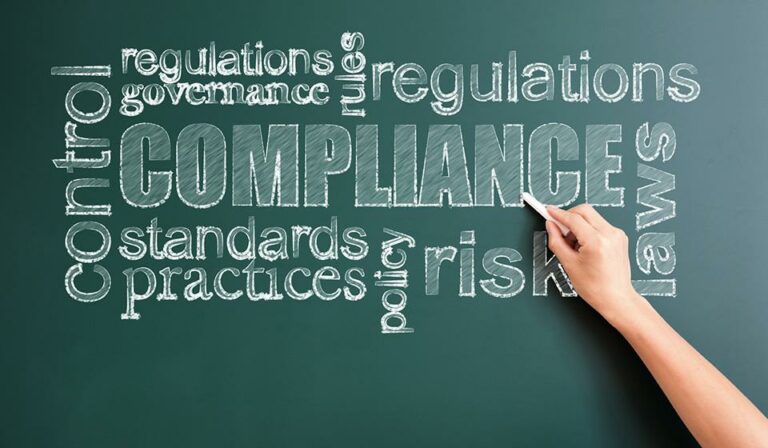What is the False Claims Act in Healthcare?
The False Claims Act – some background
The United States False Claims Act (FCA) is a significant federal law aimed at prosecuting individuals or organizations that make false or fraudulent claims for payment from government agencies. It strictly forbids the knowing submission of false claims for payment and making false statements that are critical to a false claim. The FCA also contains provisions for whistleblowers, enabling those with evidence of fraud against government programs to sue and seek recovery of funds tied to false claims. Whistleblowers may receive a portion of the funds recovered, typically ranging from 15 to 25 percent.
Why the False Claims Act Matters
The False Claims Act holds immense importance for organizations and employees in the healthcare sector. This includes those involved in selling and distributing medical devices, technology, software, pharmaceuticals, and providing healthcare services or medical products. Comprehending the boundaries and implications of the FCA is crucial for these entities to prevent fraud while maintaining productivity and profitability.
The Origins and Purpose
The False Claims Act originated in 1863 during the American Civil War to combat fraudulent activities against the government. Back then, unscrupulous contractors sold defective weapons, sickly mules, and inadequate provisions to the Union Army. President Abraham Lincoln expressed his disdain for those who profited from the nation’s misfortunes while pretending to be loyal to the flag.
In 1986, the federal government revitalized the law to encourage public scrutiny of transactions between private contractors and the U.S. government. This rejuvenation made the FCA a powerful tool for deterring fraudulent activities, discovering false claims, recovering funds, and prosecuting those involved in defrauding the government. While it began as a measure against the sale of sick mules, it has become a potent weapon in combating Medicare and Medicaid fraud. In 2009, the Fraud Enforcement and Recovery Act further bolstered its authority.
Healthcare Services and the FCA
The FCA makes it illegal to knowingly submit or cause someone to submit false claims for payment from federal funds. Numerous aspects of healthcare services and operations lend themselves to allegations of false claims. This includes:
- Submitting claims for goods or services to federal healthcare programs that were never provided.
- Knowingly submitting false records or statements crucial to a false claim.
- Making false claims about the quality or cost of goods sold to the government.
- Falsifying tests or product information.
- Performing unnecessary medical services.
- “Upcoding” by using codes to inflate charges for procedures or health services.
- Falsely presenting equipment as operational or tested.
- Unbundling charges with multiple codes to increase costs.
- Bundling several charges to secure higher reimbursement.
- Double billing for services or products.
- Falsifying test results or other information linked to a claim.
- Failing to report government overpayments.
- Billing for research that the organization never conducted.
- Not reporting product defects while continuing to sell and bill for the product.
Common FCA Cases
Among the most frequent types of FCA cases involve the submission of false claims for services or goods that were never provided and the submission of false records or statements crucial to a false claim. For instance, if a physician submits a claim for a patient visit they never conducted, it constitutes a false claim. If the organization receiving the claim requests records of the visit and the physician falsifies and submits them, it constitutes a false claim.
Other common false claims relate to falsifying documentation about product quality or testing. For example, if an organization sells a medical device as tested and operational but later discovers it’s defective and doesn’t report this while continuing to sell the device, it constitutes a false claim.
Whistleblower Provisions
The FCA offers a mechanism for the public to sue and receive incentives for fraud against federal programs. This incentive provision, known as the “Whistle Blower” provision or “Qui Tam,” is derived from a Latin phrase meaning “he who sues for the king as well as himself.” The process begins when an individual or group gathers evidence of potential fraud. If the government validates the claim’s merit, it may take over the case. If funds are recovered, the whistleblower may receive between 15 and 25 percent of the recovery, which can be substantial.
Penalties
Penalties under the False Claims Act have evolved. In 2015, Congress introduced changes and allowed for annual updates to penalties based on inflation. In 2022, the Justice Department increased the penalty per claim, ranging from $12,537 to $25,076. Individuals can also face criminal penalties, including fines and imprisonment.
It’s essential to recognize that each instance of billing for medication, medical equipment, or other products or services can be viewed as a false claim. Consequently, settlements for high-volume services or products can lead to substantial sums. Some states have their own false claims laws, resulting in significant fines for individuals and organizations under those state laws.
The Role of Healthcare Organizations
Healthcare organizations have become the most common source of False Claims Act judgments and settlements. In the fiscal year ending June 30, 2022, the U.S. Department of Justice reported $5.6 billion in settlements and judgments, with over $5 billion related to healthcare services, products, and organizations. This amount was second only to the $5.7 billion recovered in 2014.
The False Claims Act and other Laws
Federal authorities are increasingly linking Stark Law violations with the Federal False Claims Act. The Stark Law prohibits financial relationships between Designated Health Services and physicians referring patients to those services, except under specific exceptions. Hospitals, for example, cannot receive Medicare or Medicaid payments for services ordered by physicians with financial relationships unless they have a valid exception in place. Defective arrangements require repayment of payments for services ordered by the physician to Medicare and/or Medicaid.
Each claim submitted to government payers includes a certification of compliance with all applicable Medicare or Medicaid laws and regulations, including the Stark Law. Therefore, an improper arrangement with a physician ordering services on the claim can lead to a false claim. This connection has resulted in significant settlements.
Preventing False Claims Allegations
To manage the relationship between healthcare organizations and the False Claims Act, it’s crucial to remember the old saying, “an ounce of prevention is worth a pound of cure.” Although government regulations don’t mandate compliance programs for most healthcare providers, guidance from the Office of Inspector General strongly encourages them. Identifying risks as a Designated Health Service is a vital part of establishing an effective compliance program. Internal monitoring with a compliance program is a sound strategy to avoid False Claims Act allegations.
Frequently Asked Questions (FAQs)
Under what circumstances can violations of the False Claims Act result in criminal penalties?
Moreover, violations of the False Claims Act can lead to criminal penalties when individuals knowingly present false or fraudulent claims, conspire to defraud the government through false or fraudulent claims, make false statements material to such claims, or engage in activities like submitting multiple requests for the same service with the intent to commit fraud. In such cases, individuals may face criminal charges, imprisonment, and/or fines.
Does intent to defraud need to be proven for a violation of the False Claims Act?
Yes, to establish a violation of the False Claims Act, intent to defraud must be proven. This means that those alleging healthcare fraud must demonstrate that the defendant knowingly made false statements or engaged in other deceptive actions with the intent to deceive. Evidence, such as false statements or the knowing use of false records, can infer intent.
Are there any special considerations regarding False Claims Act liability when providing telemedicine services?
Yes, telemedicine services raise unique False Claims Act liability concerns due to the higher fraud risk with remote diagnosis. Providers must ensure legal compliance, proper documentation, and guard against issues like upcoding.
Is it possible for individuals and entities accused of violating the False Claims Act to settle without going through lawsuit proceedings?
Yes, accused parties can often settle False Claims Act violations without lengthy lawsuits. The terms vary, but many opt for government settlement, avoiding lengthy trials.
Can a whistleblower in a False Claims Act case be prosecuted?
No, under the False Claims Act, whistleblowers are protected from prosecution. The Act safeguards whistleblowers from employer retaliation and criminal prosecution when they report healthcare fraud or misconduct. However, if someone finds their disclosures false or maliciously motivated, they may face civil action instead of criminal prosecution.
Conclusion
Anyone involved in healthcare services and organizations must understand the False Claims Act and its implications. This law prevents fraud, safeguards taxpayer funds, and ensures quality in healthcare services and products, benefiting the public.
Feel free to reach out if you have more questions or need further clarification on any aspect of the False Claims Act. Contact one of our attorneys at Dike Law Group and schedule an intake discussion so we can answer any questions and address your needs at dorismeet.com.







